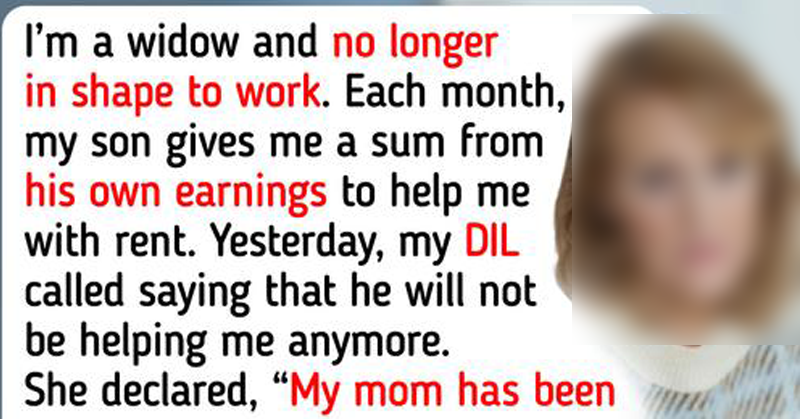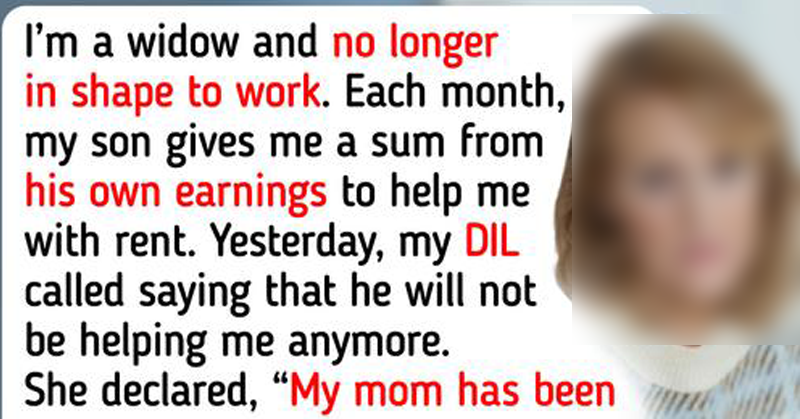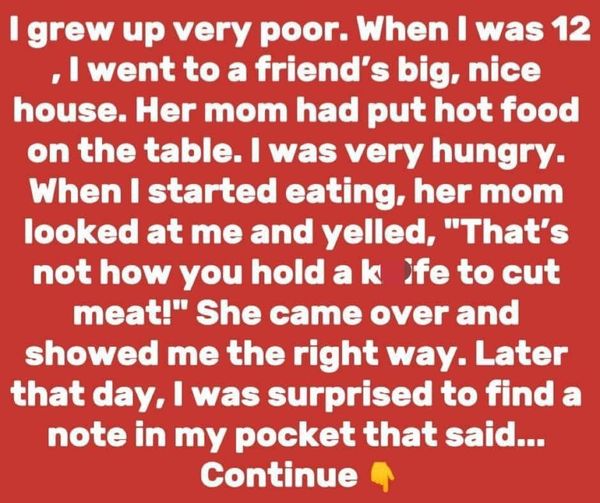
Oh, the drama of family financial disputes! Nothing quite gets the blood boiling like money and favoritism. Let’s dive right into the tempestuous tale of Ruth, a mother feeling the sting of her son’s redirected financial support. Prepare yourselves for a rollercoaster of emotions, folks.
In This Episode of Family Feud…
Ruth is a widow, relying on her son’s monthly contributions to cover her rent. She’s been getting by with this help, but a recent bombshell has left her reeling and furious.
Here’s What Ruth Shared:

“I’m a widow and no longer in shape to work. Every month, my son gives me a sum from his own earnings to help me with rent.
Yesterday, my daughter-in-law called saying that he won’t be able to help anymore.
Devastated, I asked why, and she declared, ‘My mom has been in bad shape lately, and we need that money to send her to a health spa and also have her do some physiotherapy sessions.’
She added, ‘I think it’s time for my mom to benefit from us too. She needs this money more than you do now. After all, my husband’s money is also my money.’
Hearing those words, I was furious.
My DIL is a stay-at-home housewife. She raises my grandkids and has never worked. This money is my son’s money, and I am more entitled to it than her own mother. I do not care if her mom needs to improve her health and get in better shape.
What should I do?
Sincerely, Ruth
Ruth’s frustration is palpable. She feels betrayed by her son, caught off guard by her daughter-in-law’s unexpected phone call, and the subsequent familial ‘heist’ of her monthly allowance.
As you can imagine, Ruth doesn’t buy into the ‘my husband’s money is my money’ routine. To her, it’s clear that her own needs—namely, survival—trump that of spa retreats and physiotherapy for a mother-in-law who’s seemingly muscled her way to the front of the line.
From Ruth’s perspective, being the one who actually brought her son into this world should naturally have put her at the top of the financial support hierarchy. The gall of such a request, let alone the action! For Ruth, it’s less a matter of needing the money and more about the principle of feeling cast aside in favor of someone else’s parent. And that too, by her daughter-in-law’s manifesto.
So, what’s a mom to do? Ruth’s situation is not uncommon, although it’s undoubtedly charged with emotional landmines. She has her reasons for being upset—valid reasons. Should she confront her son and speak her mind? Should she try to make peace and understand her daughter-in-law’s plea for help? Can there be a middle-ground here without a full-blown family fallout?
Firstly, it’s important to have open, honest communication. Ruth could start with a calm, sincere discussion with her son. Expressing her feelings without pointing fingers might open the door to understanding on both sides. After all, he might be caught between a rock and a hard place, trying to please both the women he loves most.
Secondly, Ruth could evaluate her financial needs and seek alternative solutions. Whether it’s looking into social services, community support, or even potential part-time work that fits her capabilities, diversifying her income sources might provide a safety net.
That said, financial strains can bring out the claws. The idea of sharing and shifting priorities is often easier said than done. Ruth’s reaction is a normal human response to feeling overlooked and undervalued.
In my opinion, Ruth must remember that her son isn’t rejecting her outright. Rather, he’s trying to balance his duties as a son and a husband. Life’s a tightrope, and kudos to anyone who manages to walk it without a wobble. Maybe, just maybe, with a little understanding and a whole lot of talking, there’s a way for Ruth and her family to navigate this sticky situation without anyone feeling left out in the cold.





